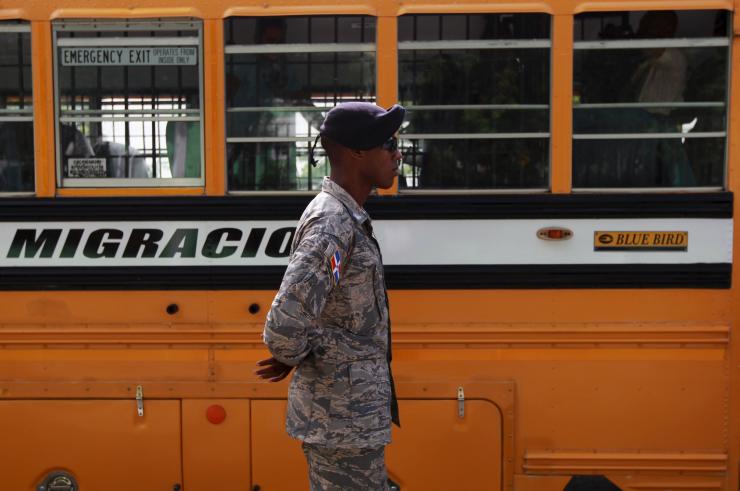






Between 1999 and 2000, members of the Medina Ferreras, Jean, Gelin, Fils-Aimé, Tide Méndez and Sensión families were arbitrarily detained and subsequently expelled from the Dominican Republic to Haiti in separate incidents.
The detained victims were subjected to harsh treatment. For example, Willian Medina, a Dominican citizen, and his family were seized from their home in the early hours of the morning, were briefly detained, and then sent to Haiti in a van. During his detention, Willian’s identity documents were destroyed by Dominican immigration officers. His children did not speak Haitian Creole when they were expelled to Haiti. The Jean, Fils-Aimé and Sensión families were also expelled with their children.
Although these expulsions occurred on different dates, they all took place within a larger context of systemic discrimination and state-enforced expulsions of thousands of Haitians and Dominicans of Haitian descent living in the Dominican Republic. In 2009, the United Nations High Commissioner for Human Rights estimated that in previous years between 20,000 and 30,000 Dominicans and immigrants were expelled annually.
Given the context, these cases were filed as one petition by the Groupe d’appui aux Rapatriés et Réfugiés (GARR), el Movimiento de Mujeres Dominico-Haitiana (MUDHA), Columbia Law School Human Rights Clinic and CEJIL, before the Inter-American Commission, where the case was known as ‘Benito Tide Mendez’. Ultimately, the case was presented at the Inter-American Court, where it was assigned the name ‘Case of Expelled Dominicans and Haitians’.
Only a few weeks before the litigation before the Court, on September 23rd 2013, the Dominican Republic’s Constitutional Tribunal issued Judgment TC 168-13, which retroactively stripped thousands of Dominicans of their nationality. The Tribunal reasoned that anyone born in the country after 1929 to parents without legal status should have been considered “in transit” and therefore ineligible for citizenship. An estimated 210,000 Dominicans of Haitian descent were denationalized, with many left stateless. Although the government attempted to provide some sort of identity document to these denationalized individuals, the processes established by Law 169-14 were not effective and required many of the affected individuals to first declare themselves to be foreigners. CEJIL has issued detailed statements on the discriminatory effects of both TC 168-13 and Law 169-14.
The Inter-American Court’s decision, issued on August 24th, 2014, held that the Dominican Republic had violated the victims’ rights to legal personality, nationality, and a name, regarding those that had a right to Dominican nationality and had been denied their documents. Additionally, the Court declared that the arbitrary expulsions violated guarantees of judicial protection and the right to free movement. Finally, the Court found that all of these violations occurred within a context of discrimination, further violating the American Convention on Human Rights.
In addition to making these determinations regarding the Medina Ferreras, Jean, Gelin, Fils-Aimé, Tide Méndez and Sensión families, the Court also analyzed TC 168-13 and Law 169-14, finding that both violated numerous rights protected by the American Convention. The Court therefore ordered the government to adopt measures to leave TC 168-13 and parts of Law 169-14 without effect, a measure which the Dominican government has yet to adopt.
Case Impact
Help us continue this critical and urgent work with a donation!
DONATE NOW